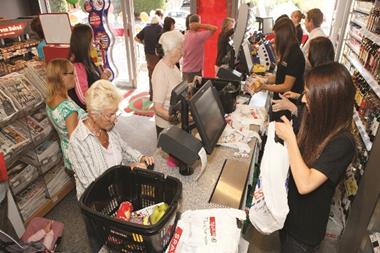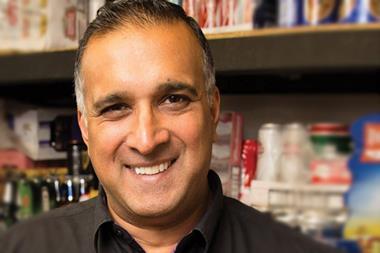UK convenience stores will need to serve an extra 50 customers a day or increase basket size by an average of 2% in order to offset the costs of the National Living Wage and workplace pension provision, according to research firm IRI.
The company calculates that the average independent c-store will need to generate an additional £8,000 in annual sales to neutralise the effect of the cost increases, but that this is achievable with the right balance of footfall-driving and basket-building initiatives, and by correctly appraising the product range in key categories.
IRI head of convenience Stephen Lampard told C-Store: “The Living Wage will have a really important impact on retailers, but it will depend on the type of store as to the best way to respond. The fewer the number of products stocked, the harder it will be to increase basket size, so there is a need to focus on more footfall. Larger retailers, however, probably already have most of the traffic they are going to get so they need to look at basket size.”
Head of retail analytics Tom Hall explained that different product categories vary in their price-sensitivity, and so the tactics should vary. “For products such as milk, beer, wine and tea, if you reduce the price it is a large attraction for shoppers, whereas if you increase prices you lose a lot more in sales than you make in extra revenue per unit,” he said. “However, there are products, such as bottled water, where sales are less closely related to retail price and you have more leeway to increase.
“Growing the basket is more about having promotions on expandable categories such as chocolate and crisps.”
Lampard added: “A lot of factors are still driving growth in convenience. Top-up is a fast-growing mission, and can now be divided into different types of mission. Success is all about understanding who comes in to store and responding to that.”






















No comments yet